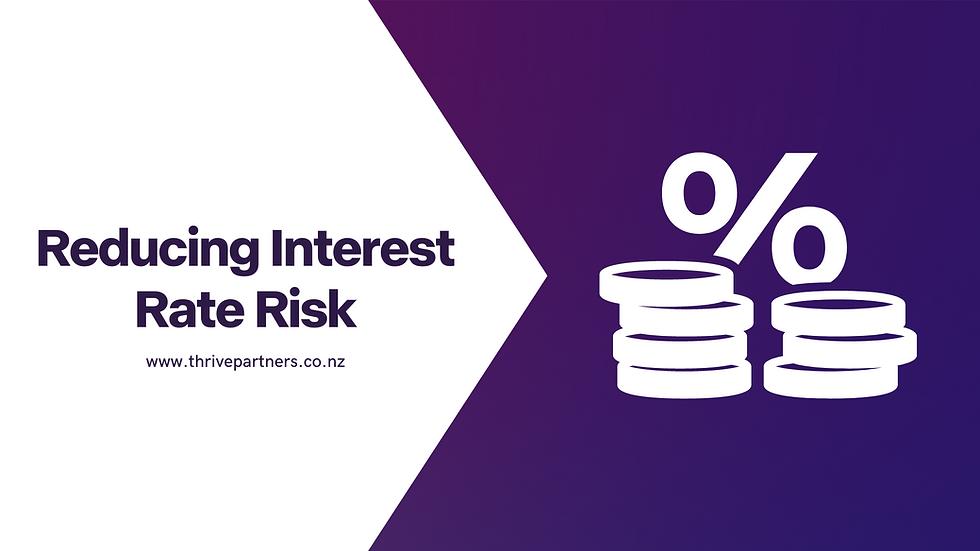Why You're Susceptible To Losing Money. The Winning & Losing Mindset When Investing
- Ryan Smith
- Nov 23, 2022
- 4 min read
Updated: Aug 5, 2025
In the world of investing, mindset is one of the biggest factors separating successful investors from everyone else.
A good investor doesn’t need a crystal ball, but they do need clarity - clarity about what they’re investing in and why.
As Warren Buffett famously said:
“Risk comes from not knowing what you’re doing.”
Recent years have been a rollercoaster for property investors. We’ve seen massive price rises, followed by sharp declines.
This kind of volatility can shake even seasoned investors’ confidence, and for many, it has. This is why it's crucial to understand and apply the right investing mindset.
The Confidence Cycle
During 2021, when prices were soaring, investors were bullish. They had faith in the market and believed capital gains were inevitable.
But as interest rates rose and the CCCFA changes kicked in, prices cooled. Suddenly, the confidence of the previous year vanished. Property investment, which only months earlier felt like a golden ticket, now seemed like a risky gamble.
This reaction is common, but it’s also shortsighted.
According to data from the Real Estate Institute of New Zealand (REINZ), property in New Zealand has delivered average annual capital growth of around 6%, even when factoring in major downturns like the Global Financial Crisis.
The takeaway? Short-term fluctuations are inevitable, but over the long run, property investment has historically performed remarkably well.
The Danger of Availability Bias
So why do investors lose confidence so quickly?
One reason is availability bias: a cognitive error where people place too much weight on recent events and assume they’ll repeat in the near future.
In property, this plays out like this:
When the market is hot, investors believe growth will continue forever
When prices cool, they panic and assume the slump is permanent
This bias clouds rational thinking and causes investors to ignore the bigger picture.
Putting Interest Rates in Perspective
Take interest rates, for example. Recent headlines have painted the current rate environment as “unprecedentedly high,” but is that really true?
The average 1-year fixed mortgage rate in New Zealand since 2004 has been 5.91%. The rates we’re seeing now aren’t extreme, they’re closer to historical norms than most people realise.
Investors who rely solely on recent headlines risk making emotional, short-sighted decisions instead of strategic, long-term ones.
Why Expertise Matters
Circling back to Warren Buffett’s quote: risk comes from not knowing what you’re doing.
Without the right data, guidance, and strategy, investors are flying blind, and that’s where poor decisions happen.
This is why working with experienced advisors is critical. They can help you cut through the noise, focus on real data, and make informed decisions that align with your long-term goals, not just short-term market chatter.
Bottom line: Property investment has always been a long game. Ignore the headlines, focus on historical trends, and surround yourself with experts who can help you navigate market cycles with confidence.
How Can We Help You?
We help Kiwis build wealth through property investment. Our advisors will take the time to understand your individual needs and recommend suitable investment properties to help you build wealth and set up your retirement.
What Does This Look Like?
We use a 3-step process:
We start with a Discovery Meeting where we learn about you, your goals, etc., and you learn more about us.
This is followed by a Strategy Meeting where we model your retirement plan, understand key investment concepts, and briefly touch on some investment choices.
Finally, an Asset Selection Meeting where we discuss investment options in more detail and make any recommended adjustments based on what we now know about you.
Who Are We Right For?
We help people make smart investment choices and set up their futures. From first-time investors to experienced investors, we can cater to a wide range of people and help set up their futures through research-based property investment.
How Much Does It Cost?
Our advice is free to you! If you choose to invest, we’re paid by the property developer. This developer-paid model allows us to provide no-obligation property investment advice in New Zealand, without charging clients directly.
What Do We Do, And What Don't We Do?
What We Do
We offer end-to-end New Zealand property investment advice, helping Kiwi investors grow wealth through smart, data-led decisions. Our focus is on quality new builds in strong locations, tailored to your goals, guided by a team that knows the NZ market inside out.What We Don’t Do
We don’t do KiwiSaver, shares, cryptocurrency, or broad financial planning. Thrive is not a generalist firm. We specialise in property investment in New Zealand because that’s where we deliver the most value. By staying focused, we cut through the noise and help our clients make confident, well-informed property investment decisions.
How Do I Start?
Start the process now by booking a time to talk with our advisor by clicking here.








Comments